Wheelchair badminton master Lee Sam Seop spoke to Badzine last month about being the inaugural BWF Para-Badminton Player of the Year in 2015, and about what lies ahead for 2017 and 2020.
Photos: Badmintonphoto and Don Hearn
There are two kinds of people in the badminton world: those who play wheelchair badminton and those who can only watch in awe as these incredible athletes intersperse precision racquet skills with forearm-punishing turning, stopping, and wheeling to all corners of the badminton court. Well, perhaps that is an exaggeration – and one that risks a disservice to the skill of players in the other para-badminton disciplines – but it could become a lot closer to the truth as more and more people get the chance to see this unique game played.
The most experienced and decorated of the wheelchair badminton players is Korea’s Lee Sam Seop. In an extraordinary triple-triple, in three of the last four World Para-Badminton Championships, Lee has taken gold in men’s singles, men’s doubles, and mixed doubles. He had to settle for three silvers at the Asian Para Games in Incheon two years ago but he earned gold, silver, and bronze at the continental championships in Beijing last month.
Last year, at the Gala Dinner preceding the Superseries Finals in Dubai, Lee received perhaps some long overdue recognition as he was named as the first male Para-Badminton Player of the Year by the BWF.
Lee Sam Seop spoke to Badzine shortly before he left for Beijing for the Asian Championships, in between some exciting developments for him and for his sport. The BWF had recently announced that the 2017 Para-Badminton World Championships would be hosted by the Korean city of Ulsan, where Lee is based with the Ulsan Junggu Para-Badminton Team. Then this week, the BWF announced that Lee is again among the candidates for 2016 Para-Badminton Player of the Year.
Badzine: Have you had the chance to travel the world with your new fame since you were named Para-Badminton Player of the Year last year?
Lee Sam Seop: We’ve participated already this year in the Ireland Para-Badminton Open but we haven’t been able to travel much to compete because it’s quite difficult to arrange accommodation for everyone. In Ireland, I guess there was a little of that. Some of my friends were congratulating me on receiving the award.
Badzine: Do you feel that there is any difference in your status since you received the award?
Lee Sam Seop: I guess there is some but there hasn’t been any big change. I’m happy about it of course but it hasn’t had that much meaningful impact. I don’t feel that so many people are aware of the award, apart from those associated with para-badminton.
Badzine: Do you think that Para-Badminton got some of the recognition it deserves because the awards were given out at the Superseries Finals in Dubai?
Lee Sam Seop: Sure. There is that aspect and it was the first time. I don’t know if they plan to give out these awards every year but I believe there will be an Outstanding Player of the Year for this year, too.
It is not a para-badminton event being staged separately. You have quite a few top non-para-badminton players gathered together at that kind of year-end event. It’s like a kind of festival so I wonder if they gave an opportunity for some of our A-level players to get together and play on court, too. If it could be that kind of event, I wonder if that might give more exposure to our sport.
It’s just something that I’ve thought about but I’ve thought wouldn’t it be great if the BWF tried something like that.
Badzine: Do you fancy your chances of another three-gold performance at the upcoming Asian Championships?
Lee Sam Seop: It would be nice if I could do that. But like in non-para-badminton, between the World Championships and the Asian Games or Asian Championships, because so many of the top players are from Asia, there isn’t that much of a difference so I have to expect about the same level of competition.
Badzine: Do you think the Asian Championships are more likely to attract more participation from the top Asian players than a World event held in Europe or elsewhere?
Lee Sam Seop: I think that might tend to happen with the standing athletes but in the case of the wheelchair players, quite often some of the players we expect to see aren’t there.
Actually, not so much with the Open tournaments but with the continental and World Championships, they always seem to fall during colder weather and – it’s just my opinion – but I think why can’t they just hold the tournament a little earlier? Every year, the championships are in October or November and I think, why do we have to have it at such a cold time of year?
In Europe, too, November can be quite cold. But why not in September? Or spring would be good, too. I mean, it’s only our one sport that has to be considered. I understand with something like the Asian Games, they have to accommodate athletes in a lot more disciplines.
So anyway, I wonder whether we might not get more participation in the wheelchair events from, say, the Southeast Asian countries if it weren’t for the colder weather.
Badzine: So what region are you from and where are you based now?
Lee Sam Seop: I’m from Changwon originally but now I play for a professional team in Ulsan. It is only an hour from Changwon to Ulsan but the big advantage to the current situation is that I am able to focus on the sport.
Before, I’d had to keep a job and my accommodation was through my workplace. Now, I receive a salary and accommodation and can focus on training so that is the most convenient thing about the situation in Ulsan.
Badzine: As Tokyo 2020 approaches – the first Paralympics where para-badminton will be played – do you expect to see a lot of changes in your sport?
Lee Sam Seop: Sure, I think that as the Olympics approach, we’re going to see a lot more talent, particularly from China, and there will be an evening out of the skill levels.
As I see it, we should be able to maintain the upper hand until the Olympics in 2020, but after that, things are likely to even out and we won’t be able to count on Koreans winning the titles all the time.
Still, altogether this is a good thing if we have more athletes emerging in all disciplines and raising the skill level.
Badzine: When we spoke back in 2009, you said you hoped that para-badminton would be in the Olympics while you were still young enough to compete at a high level. Now Tokyo is four years away. Do you think you can do it?
Lee Sam Seop: It’s not a matter of saying I can do it, I have to do it!
I mean, I’ve already come this far and since I first took up the sport, playing in the Olympics has always been my goal. So no matter what, I have to do it!
![Lee Sam Seop – The next 4 years for the Player of the Year Wheelchair badminton master Lee Sam Seop spoke to Badzine last month about being the inaugural BWF Para-Badminton Player of the Year in 2015, and about what lies ahead for 2017 […]](http://www.badzine.net/wp-content/uploads/ngg_featured/Lee-Sam-Seop-IU5G6273_rotator.jpg)
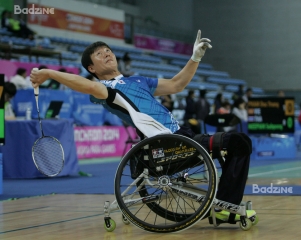
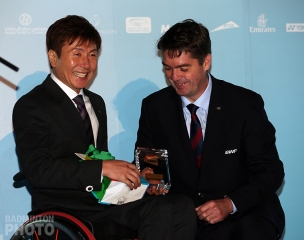
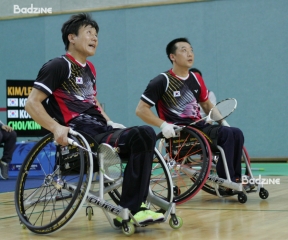
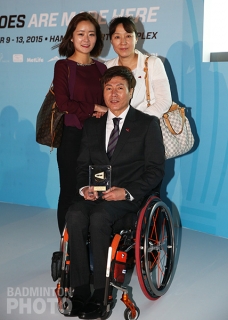
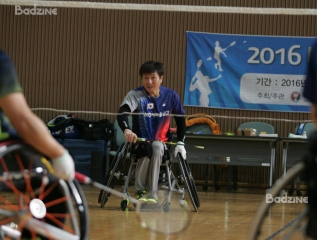
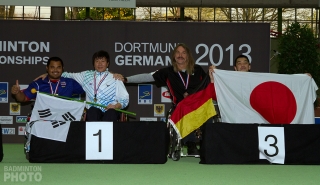
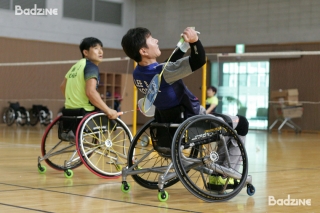
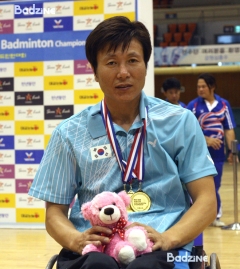

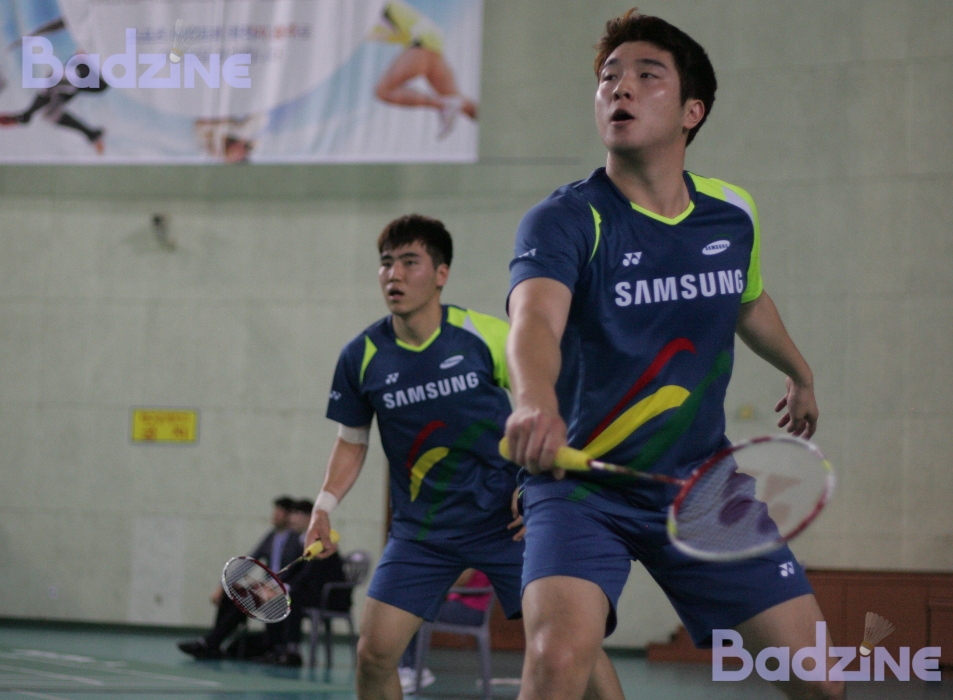
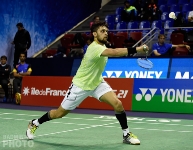
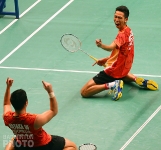
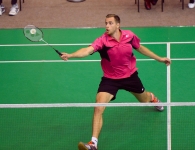
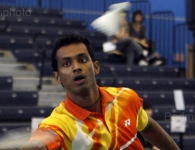
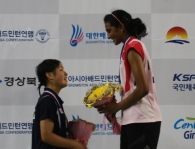
Leave a Reply